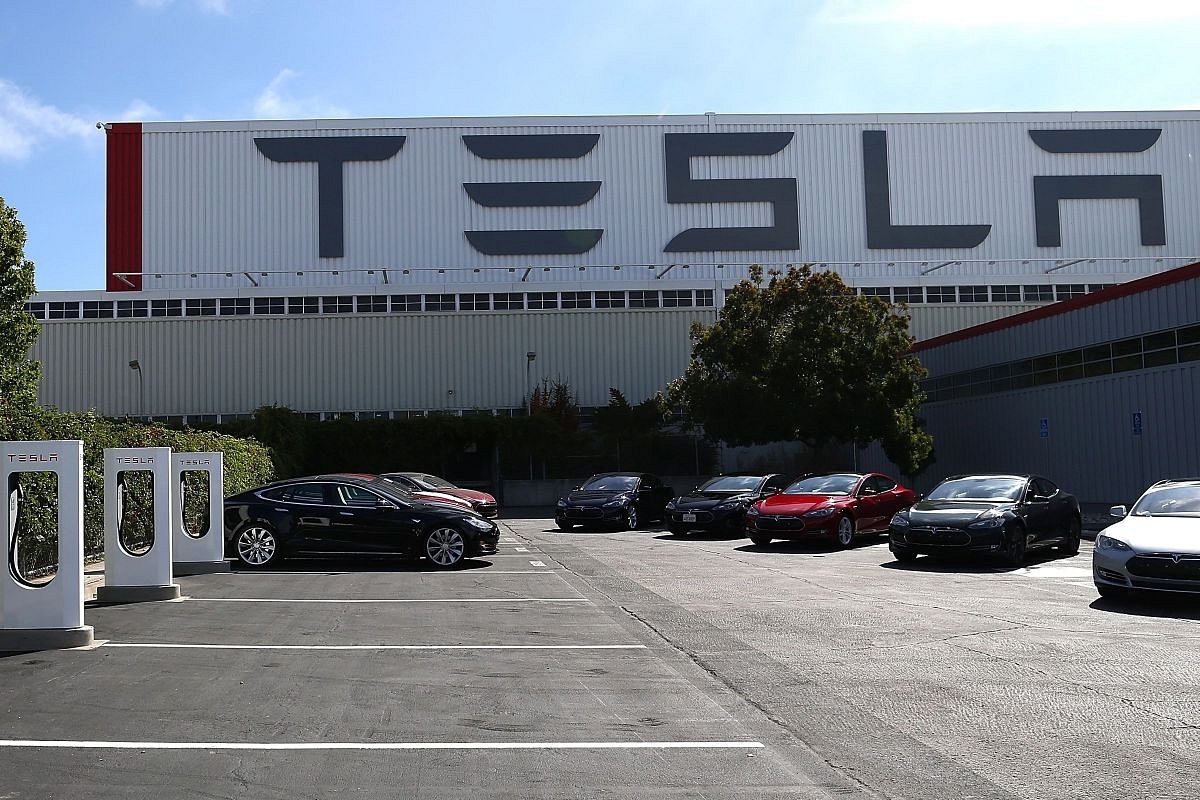News Brief
Govt May Consider Lower Import Duty, Other Incentives If Tesla Sets Up Manufacturing Facility In India: Report

Tesla’s factory in Fremont, California (representative image) (Justin Sullivan/Getty Images)
India may consider US electric carmaker Tesla's demand for lower import duty and will provide other incentives if the company decides to manufacture its electric vehicles locally.
Tesla had earlier approached the government seeking reduction in customs duty on its fully assembled cars.
The US electric carmaker had sought a 40 per cent import duty on fully assembled electric cars against the current rate of 60 per cent applicable on those priced below $40,000 and 100 per cent on those above the $40,000 mark.
Tesla had reasoned that its cars should be treated as electric vehicles and not luxury automobiles.
"We will be open to consider, especially if they will set up a manufacturing place here," a government official was quoted by Economic Times as saying.
However, any decision on the matter will be sector specific and not for a particular company, according to the report.
Besides, Tesla could also avail various incentives that Prime Minister Narendra Modi led Central government had rolled out to encourage local production of EVs in the country.
It should be noted that the Modi government is also in touch with large global firms to set up manufacturing plants in the country. It has reduced the GST on EVs from 12 per cent to 5 per cent. Further, to boost charging infrastructure in the country, the GST on charging stations for EVs has been slashed to 5 per cent from 18 per cent.
Under the FAME-India scheme, the government is also providing incentives on purchase of the EVs through an upfront reduction in their price. Further, a Rs 1.5 lakh income tax deduction is being provided on interest paid on loans taken to purchase such vehicles.
However, no such incentives are being provided for the imported electric vehicles.
Further, the current duty structure does not differentiate between electric cars and those running on traditional fuels.
Introducing ElectionsHQ + 50 Ground Reports Project
The 2024 elections might seem easy to guess, but there are some important questions that shouldn't be missed.
Do freebies still sway voters? Do people prioritise infrastructure when voting? How will Punjab vote?
The answers to these questions provide great insights into where we, as a country, are headed in the years to come.
Swarajya is starting a project with an aim to do 50 solid ground stories and a smart commentary service on WhatsApp, a one-of-a-kind. We'd love your support during this election season.
Click below to contribute.
Latest